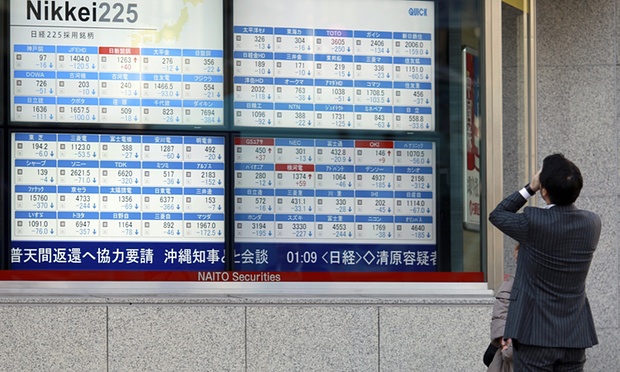Global stock markets have started the year badly (New York Stock Exchange down 8%, MSCI World Market Index down 10%, Japan down by 19%). While many will view these markets as little more than gambling tools as they do not involve direct responsibility and ownership in the same way that Islamic company structure dictates, nevertheless, hundreds of millions of people globally depend on these markets for their retirement wealth and pension funds. They have also become a barometer for the success of the economies in which these companies operate. Central planners view the success of stock and bond markets as key to long term stability and the viability of Capitalism. As a result the main US and European markets have established “plunge protection teams” who will invest government money to ensure day to day stability, and the ability to suspend markets if they fall too far too quickly. But when short term intervention in markets (which are supposed to be free to go up and down!) becomes core government policy, it is a recipe for a major collapse. It is arguable that Central Bank policies in the US. Europe and Asia (Japan) in excessive money printing (Quantitative Easing) largely went into propping up stock and bond markets and consequently recent cut backs in QE have coincided with the fall offs in the stock markets, particularly in the US.
Federal Reserve Chair Janet Yellen in testimony to Congress this past week stated that negative interest rates are still very much an option in the US. So after 7 years of virtually zero interest rates failing to stimulate sufficient growth, the next step is to go to negative rates, where banks will be charged if they hold reserves – charges which will be passed onto savers. Negative interest rates now form official policy in Japan, Sweden, Switzerland and Denmark (23% of all Capital markets!). This represents forced confiscation of wealth from the middle classes. Banks will continue to charge high rates of interest (usury) for loans and mortgages, but will force those with money to invest it (into the stock market or government bonds ideally according to policy) in order to avoid charges on their capital (the negative rate). In reality this is a pre-cursor to removing all paper based money and the introduction of electronic money (as the public will move to hold cash rather than be charged to keep their money in the bank). Governments will argue they are working against crime and terrorism in banning cash, but the truth lies in controlling all monetary transactions.
The other major danger to Central Bank plans is gold and silver – which is the ultimate in real money. As you cannot print new gold and silver in the same way that a bank merely prints more money or creates virtual electronic money like bitcoin; gold and silver acts as a real control over government policies. Other than storage fees, gold and silver has no counterparty risk (for example a major bank failure as threatened in 2008). It is little wonder that gold is up 18% since the start of the year (and silver 14%). Despite consistent efforts in suppressing the price of gold and silver over the past 4 years via paper based derivative trading, it now appears that the markets for real physical gold and silver (not paper derivative contracts – which merely represent a promise to provide G/S at a future date) are beginning to take greater control in the price setting. China and India alone bought the equivalent of the world’s new gold production in the past year with it flowing from West to East.
A true role for Gold and Silver
The many Quranic references to gold and silver not only as money but as a measurement for zakat, hudud limits, etc, serve as clear evidences that these are to be used as currency in the future Khilafah state (Caliphate).
وَالَّذِينَ يَكْنِزُونَ الذَّهَبَ وَالْفِضَّةَ وَلاَ يُنفِقُونَهَا فِي سَبِيلِ اللّهِ فَبَشِّرْهُم بِعَذَابٍ أَلِيمٍ
“And those who hoard gold and silver and spend it not in the way of Allah – give them tidings of a painful punishment.”
(Surah Tawbah 9:34)
The prohibition of hoarding currency together with forbidding interest of any type (including negative) acts as strong motivators for the circulation of wealth. Rather than gamble wealth in derivative or stock markets, Muslims seek investment in tangible businesses in which they are accountable for the correct running of those businesses. Generous spending in society is a natural course for peoples that understand that their rizq is truly from Allah سبحانه وتعالى, rather than the contradictory gimmicks that secular governments dream up to try and cajole populations into spending and “investment” into yet more haram schemes (stock, bond, derivative markets). With gold and silver acting as a true store of value rather than the shifting foundations of sand which paper and electronic currencies represent.
Jamal Harwood
Written for Ar-Rayah Newspaper – Issue 65

